In Nerve Hearing Impairment the Problem Lies in
For more information visit the National Institute of. People with hearing loss may find it hard to have conversations with friends and family.

Auditory Canal An Overview Sciencedirect Topics
Cranial nerve injuries are common complications of traumatic brain injury due to trauma or other conditions.

. A myelinated nerve fiber is _____ whereas an unmyelinated nerve fiber is _____. Sudden sensorineural hearing lossSSHL is medicinally treated with corticosteroids. An impulse from one nerve cell is communicated to another nerve cell via the _____.
Sensorineural hearing loss SNHL is the result of disorders of the inner sensory apparatus. Treatments for ear nerve damage include hearing aids. Higher pitched tones may become muffled to you.
The neural hearing loss or deafness is a most common hearing loss. 3 The 12 pairs of cranial nerves provide motor and sensory innervation to the head neck glands vasculature and viscera. Some nerve hearing loss can be accommodated for with the.
Hearing loss is the result of sound signals not reaching the brain. Conduction hearing impairment refers to hearing problems that originate in the __________. In central hearing loss the problem lies in the central nervous system at some point within the brain.
Hero ImagesHero ImagesGetty Images. It occurs from damage to the inner ear the nerve that runs from the ear to the brain auditory nerve or the brain. SNHL is usually permanent and can be mild moderate severe profound or total.
People who are suffering from this disability face difficulty in understanding speech even it. There are two main types of hearing loss depending on where the problem lies. Conditions that may result in loss of hearing due to nerve and related hearing organ problems include multiple sclerosis cerebral palsy Meniere disease Barakat Syndrome Downs Syndrome and maternally transmitted Diabetes-deafness syndrome.
Aging and exposure to loud noise may cause wear and tear on the hairs or nerve cells in the cochlea that send sound signals to the brain. Considerations Symptoms may include. Cranial nerve VIII brings sound and information about ones position and movement in space into the brain.
Clinical Medicine Fifth Edition. Sensorineural hearing loss is caused by damage to the sensitive hair cells inside the inner ear or damage to the auditory nerve. Cochlear implants and auditory training according to the University of California San Francisco Medical Center.
Comprehending speech is a complex task. The 12 pairs of cranial nerves that emerge from the brain provide motor and sensory nerves to the head and neck. When these hairs or nerve cells are damaged or missing electrical signals arent transmitted as efficiently and hearing loss occurs.
Central hearing loss. SNHL accounts for about 90 of reported hearing loss. Nerve hearing loss is often associated with aging but may also result from head trauma a virus or disease hereditary reasons malformation of the inner ear or otosclerosis a disorder where bony growth forms in the middle ear causing it to not vibrant when stimulated by sound waves.
This occurs naturally with age or as a result of injury. Your paramedic tells you the patients ECG is showing some conduction abnormalities. Injury to these nerves can.
WB Saunders London 2002 conditions-treatments. Injury of the nerves that affect the eyes and ears can cause dysfunction in vision and hearing. But a new study places the blame largely with hair cells -- the.
You have problems following conversations when two or more people are talking. Some have argued that the problem lies mainly with the stria vascularis a sort of battery in the inner ear that powers the transformation of sound energy into nerve impulses. Although some neurological diseases are associated with conductive hearing loss generally neurological causes are sensorineural.
Reference Clark Kumar. Chapter 3 page 95 In nerve hearing impairment the problem lies either in the inner ear or in the auditory pathways and cortical areas of the brain. Approximately one in three people between the ages of 65.
Conduction hearing impairment refers to hearing problems that originate in the _____. Cranial nerve CN injuries are a common complication after traumatic brain injury TBI. In this nerve and auditory systems are unable to transmit information to the brain.
Nerve hearing impairment the problem lies either in the inner ear or in the auditory pathways and cortical areas of the brain. Some sounds seem overly loud in one ear. Conduction hearing impairment refers to hearing problems that originate in the __________.
Auditory Neuropathy Spectrum Disorder Hearing loss that occurs when sound enters the ear normally but because of damage to the inner ear or the hearing nerve sound isnt organized in a way that the brain can understand. Neural hearing loss is the correct term to use when the damage is to the auditory nerve anywhere between its fibers at the base of the hair cells and the relay stations in the brain. Hearing loss that includes both a conductive and a sensorineural hearing loss.
Medications and surgery although they can be used as treatments are less effective for ear nerve damage than for other types of ear damage. Sensorineural deafness is a type of hearing loss. 12 Understanding the anatomy and function of each individual cranial nerve is essential for accurate diagnosis and.
Improve Hearing Loss due to Nerve Damage. They may also have trouble understanding a doctors advice responding to warnings and hearing doorbells and alarms. Hearing loss is a common problem caused by noise aging disease and heredity.
Tumors in the brain can damage the acoustic nerve which is called Acoustic neuroma. An impulse from one nerve cell is communicated to another nerve cell via the. It can be caused by problems in the inner ear cochlea auditory nerve or auditory nerve nucleus.
The auditory and vestibular systems subserve several functions basic to clinical medicine and to psychiatry. Excessive noise can damage the ending of the nerve which causes permanent hearing loss or tinnitus. It is an otologic.
You are caring for an older patient with chest pain. Sensorineural hearing loss SNHL is a type of hearing loss in which the root cause lies in the inner ear or sensory organ cochlea and associated structures or the vestibulocochlear nerve cranial nerve VIII. This kind of impairment cannot be helped with ordinary hearing aids gate control theory Peripheral nerve fibers can have their input modified at the spinal cord level before transmission to the brain.
This article covers the basics of cranial nerve VIII hearing and vestibular systems including common problems with.
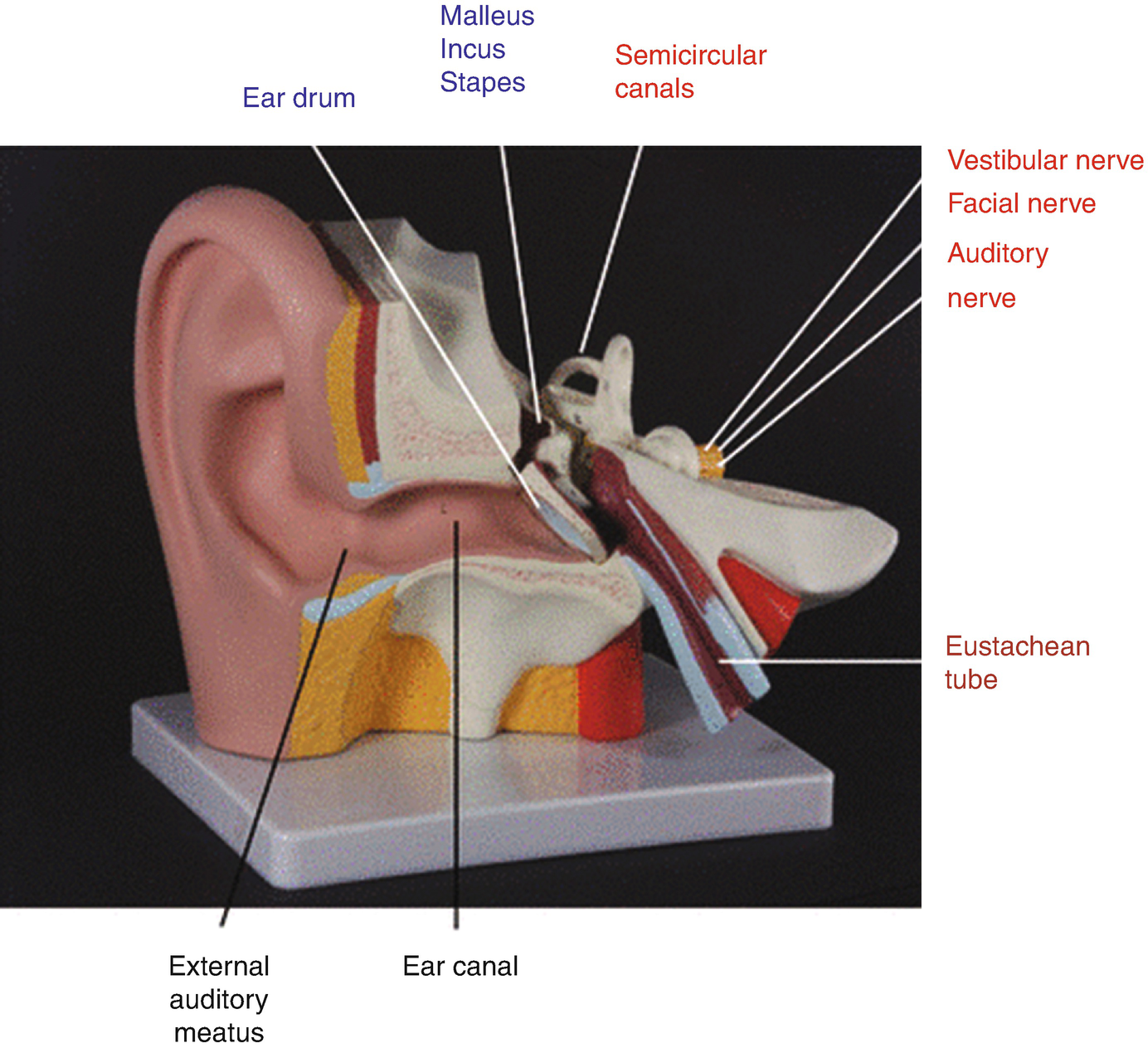
Maternity Service Provision For Deaf Women And Women With Hearing Impairment Springerlink

3 Sensation And Perception Ppt Download

Types Of Hearing Loss Degrees Of Hearing Loss New Jersey
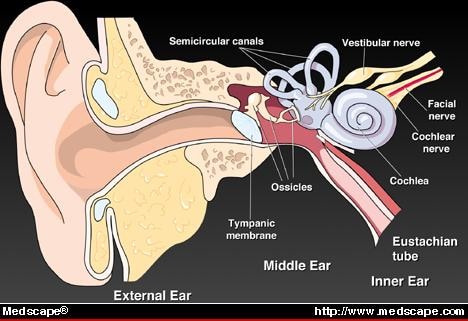
Hearing Loss Does Gender Play A Role
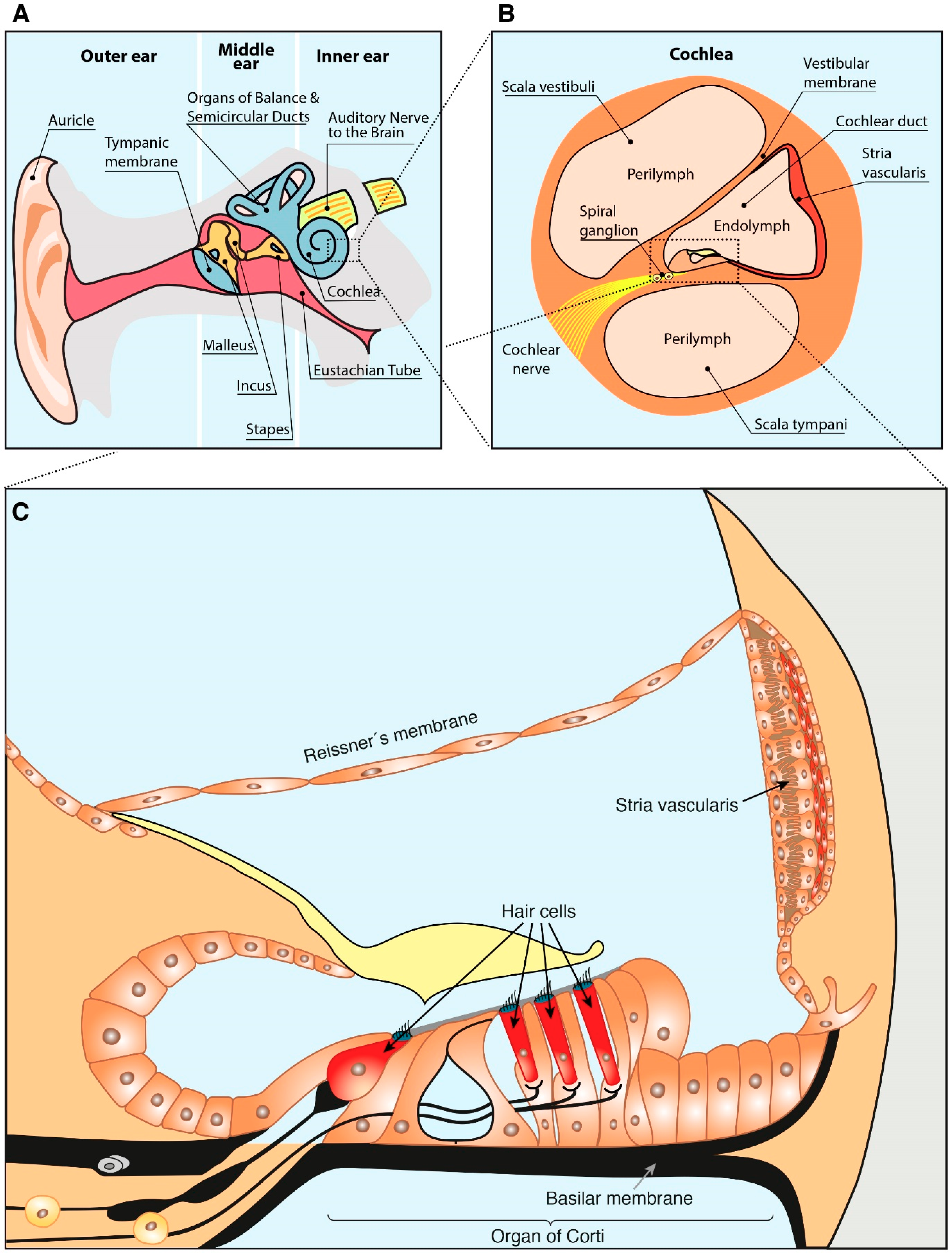
Nutrients Free Full Text Interplay Between Nutrition And Hearing Loss State Of Art Html

Ear Anatomy And Hearing Loss Beltone Tristate
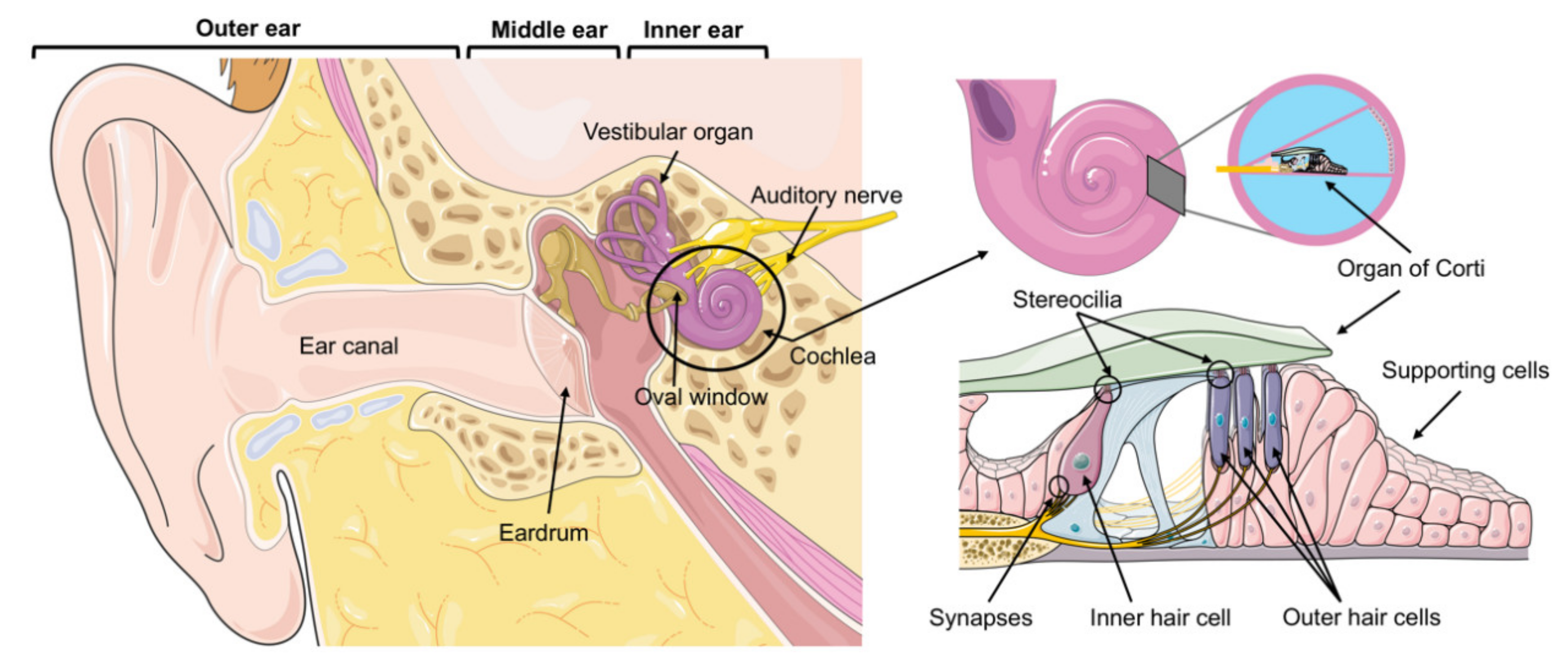
Ijms Free Full Text Mtor Signaling In The Inner Ear As Potential Target To Treat Hearing Loss Html

The Differential Diagnosis Of Hearing Loss Abstract Europe Pmc
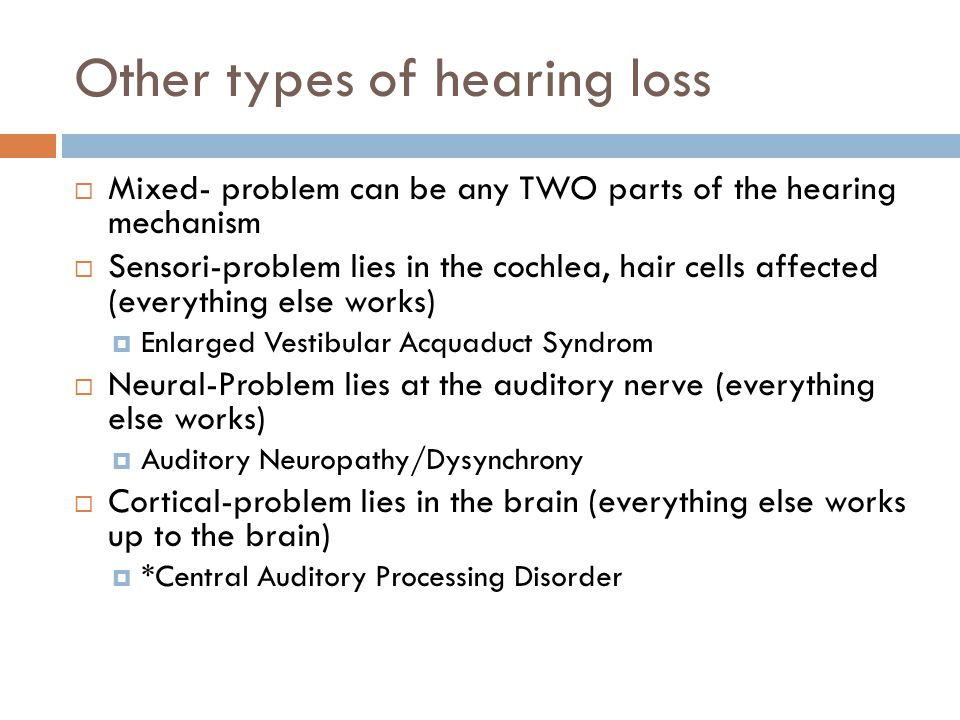
Functional Hearing Screening Ppt Download
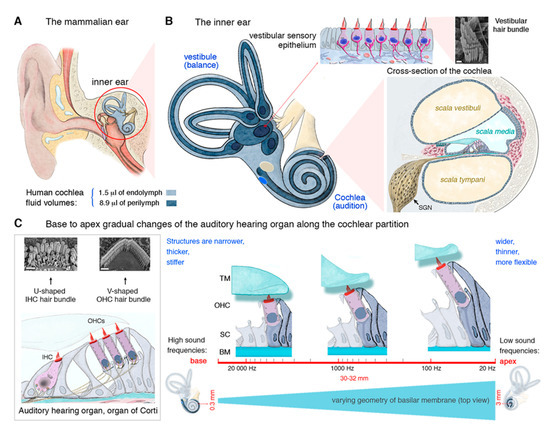
Jcm Free Full Text Inner Ear Gene Therapies Take Off Current Promises And Future Challenges Html

About Hearing Loss Carolina Audiology Associates

The Sensory System Maximum Potential

The Differential Diagnosis Of Hearing Loss Abstract Europe Pmc

Conductive Vs Sensorineural Hearing Loss Hearing Loss Middle Ear Loss
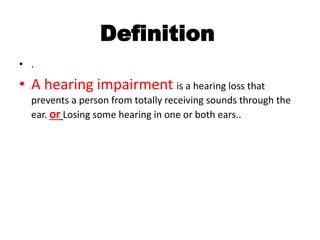
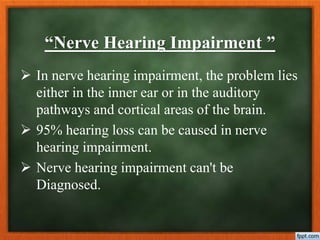
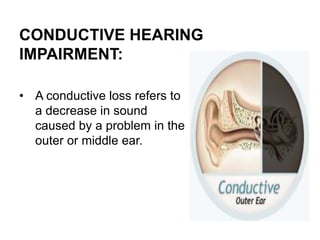
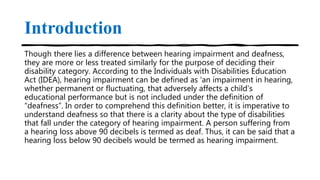
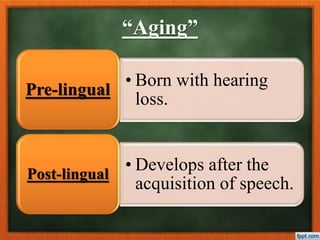
Comments
Post a Comment